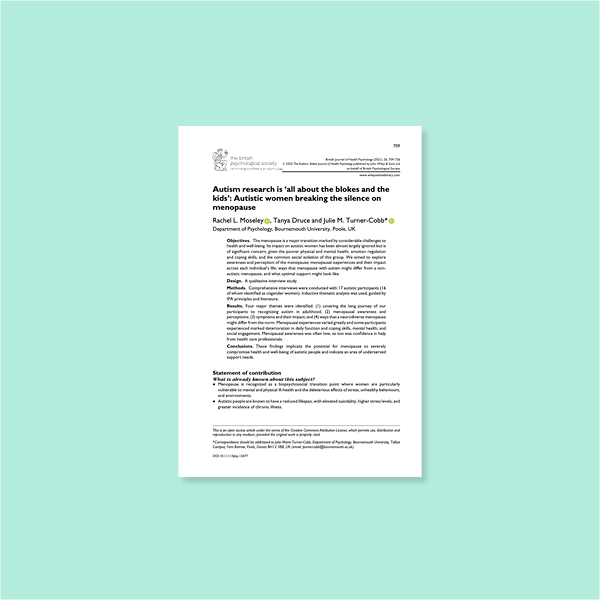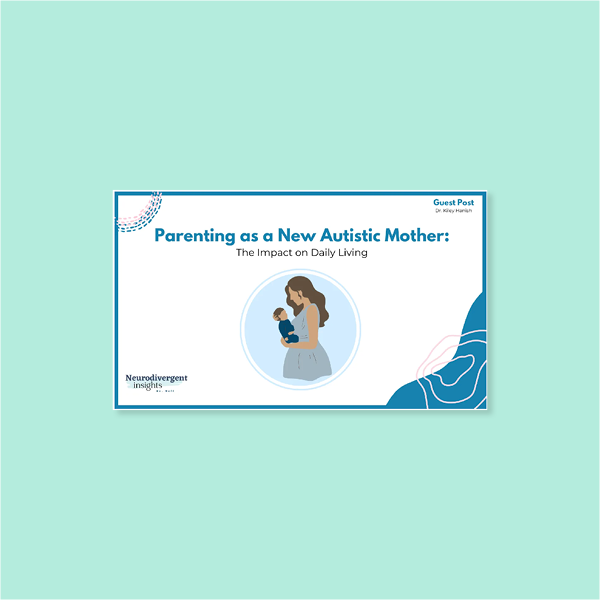 Image 1 of 1
Image 1 of 1


‘Nothing About Us, Without Us’: Research Priorities for Autistic Girls, Women and Gender Diverse People in Australia
Grove, Clapham, Moodie, Gurrin and Hall (2024)
This study asked Autistic girls, women, and gender diverse people in Australia what research would best support their lives, since their needs are often overlooked. Through interviews and surveys, participants shared clear priorities—young people wanted more support at school, better mental health care, and help with friendships, while adults highlighted the need for research on trauma, health care, workplace barriers, and the value of Autistic identity. The study shows the importance of including Autistic people in shaping future research.
Grove, Clapham, Moodie, Gurrin and Hall (2024)
This study asked Autistic girls, women, and gender diverse people in Australia what research would best support their lives, since their needs are often overlooked. Through interviews and surveys, participants shared clear priorities—young people wanted more support at school, better mental health care, and help with friendships, while adults highlighted the need for research on trauma, health care, workplace barriers, and the value of Autistic identity. The study shows the importance of including Autistic people in shaping future research.






